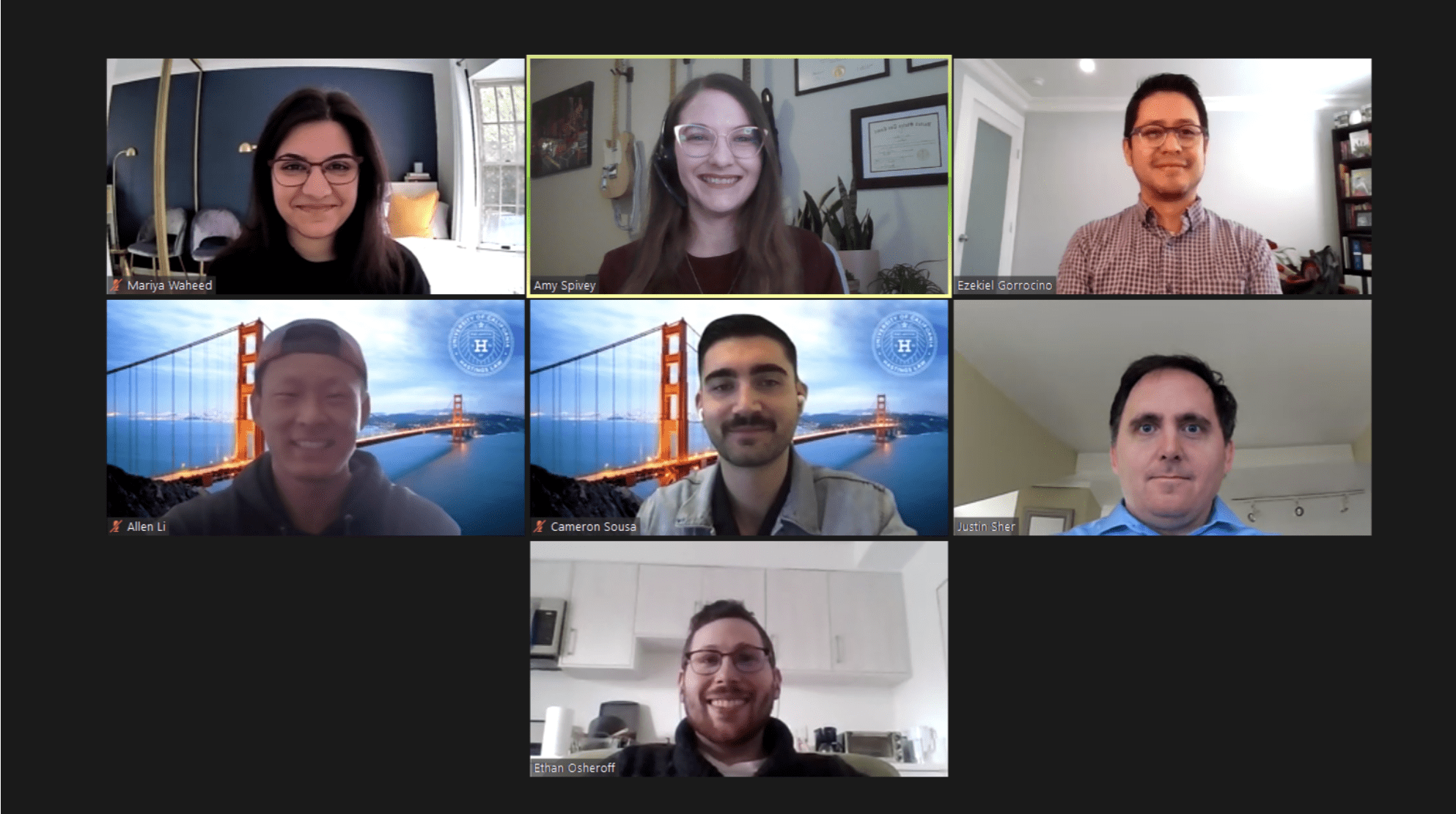Students Help Demystify Tax Rules
Students at UC Law SF’ new Low-Income Taxpayer Clinic drew on their own experiences this year to help educate disadvantaged taxpayers about their rights and responsibilities.
Ezekiel Gorrocino, 2L, had noticed that some clinic clients were in the dark about whether they qualified for tax credits such as the popular Earned-Income Tax Credit. So he created pamphlets in English and Spanish to explain who qualifies and how to claim the credit.
“As an immigrant myself who was monolingual when I first moved to the United States,” he said, “I know what it’s like being on the other side of the table not having access to information.”
Gorrocino, 37, was 16 when he moved from Mexico to Tulare County, California, after his parents died. He remembers the uneasy feeling he had while accompanying family members to the doctor’s office so he could translate for them. “I wanted to avoid that,” he said. “I wanted people to not have that feeling.”
Allen Li, a 2L who speaks fluent Chinese, saw a similar opportunity to create bilingual posters that spell out each of the three factors that determine whether workers should be classified as an employee or an independent contractor: behavioral control, financial control, and type of relationship.
Immigrants may be especially vulnerable to being misclassified as independent contractors if they are desperate to take any type of work to survive or if an employer tries to take advantage of their lack of knowledge of U.S. employment laws.
“I really would hate if people were getting taken advantage of because of that,” said Li, who worked as a paralegal before law school and saw his Chinese clients struggling to bridge the language barrier. Li, 24, was born in China and moved to Canada at age 2. He’s lived in California since age 12.
Visiting Assistant Professor and Clinic Director Amy Spivey said she hopes the projects – which are part of the Internal Revenue Service grant program that funds the clinic – instill in the students a lifelong practice of doing pro bono work and giving back throughout their careers.
“We always need lawyers who are willing to give back to the community,” she said, “especially in today’s climate.”
Other 2L and 3L students in the clinic revamped the clinic’s website, developed and conducted a presentation to nonprofits about how to access the 2020 federal Economic Impact Payments designed to stimulate the economy during the COVID-19 pandemic, and submitted a report to the IRS to correct erroneous advice that agents had been giving.
In completing the projects, the students learned important skills they’ll need that go beyond analyzing the law.
“Being a lawyer involves so much more than knowing the law,” Spivey said. “It’s about providing customer service. It’s about dealing with what the client’s goals are and working toward that. You’ve got to manage the people aspect of opposing counsel, the client, and the judge.”
Many of the most difficult challenges the students faced did not involve the law. For example, one of Gorrocino’s clients had been deported to Guatemala and could only communicate via WhatsApp.
“It really will make them better lawyers,” Spivey said, “because they will be able to think outside the box.”

